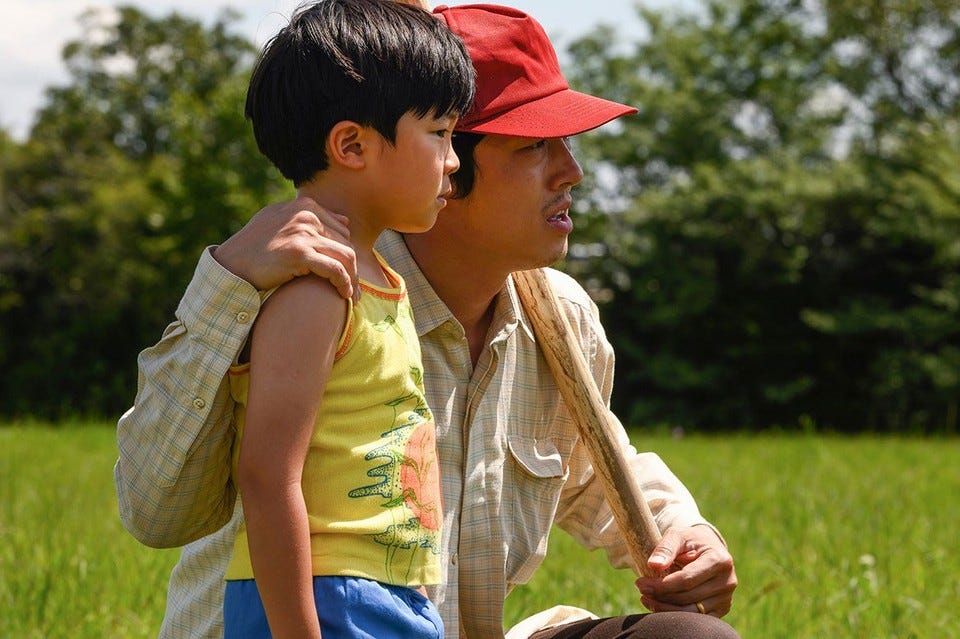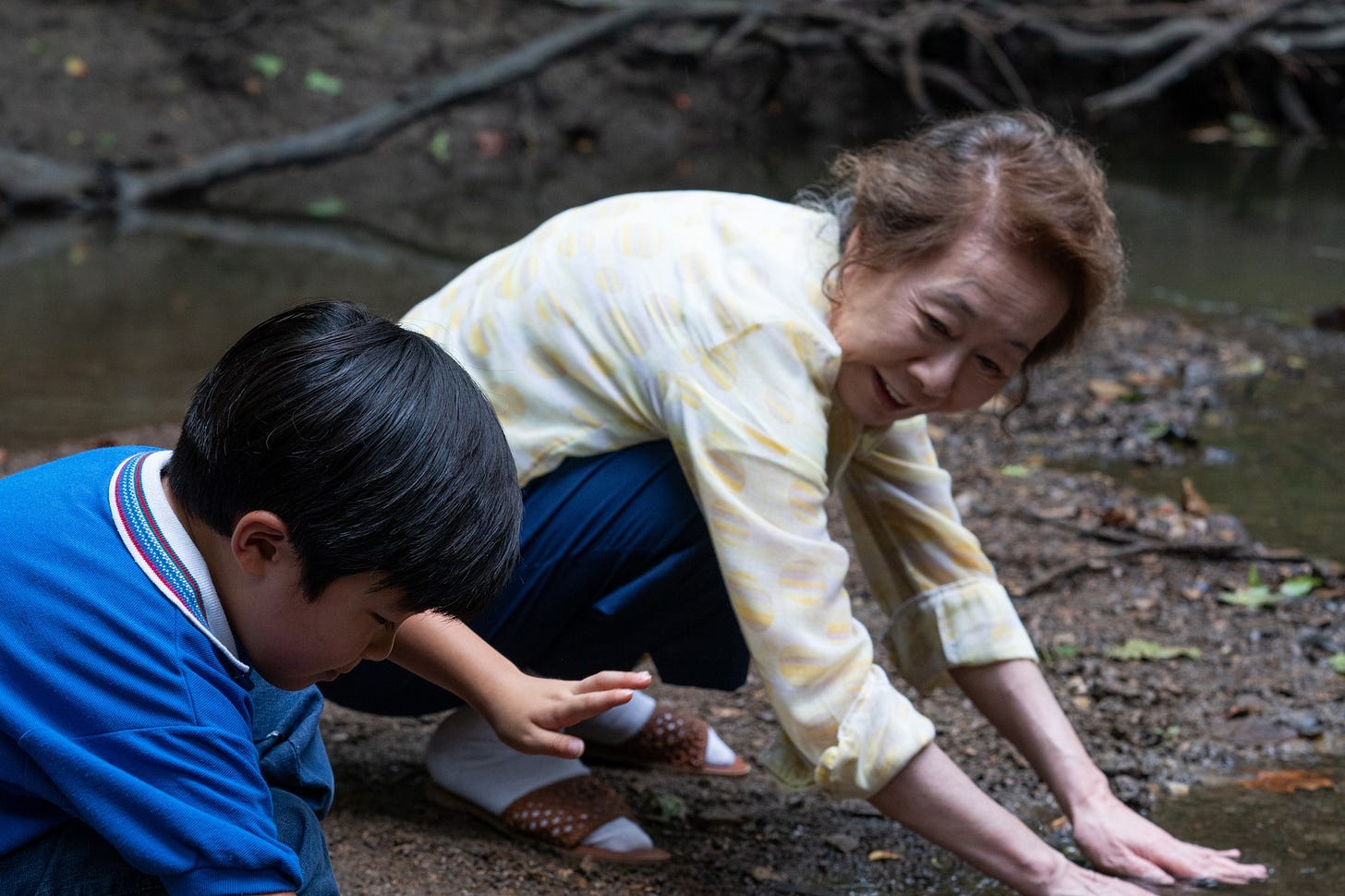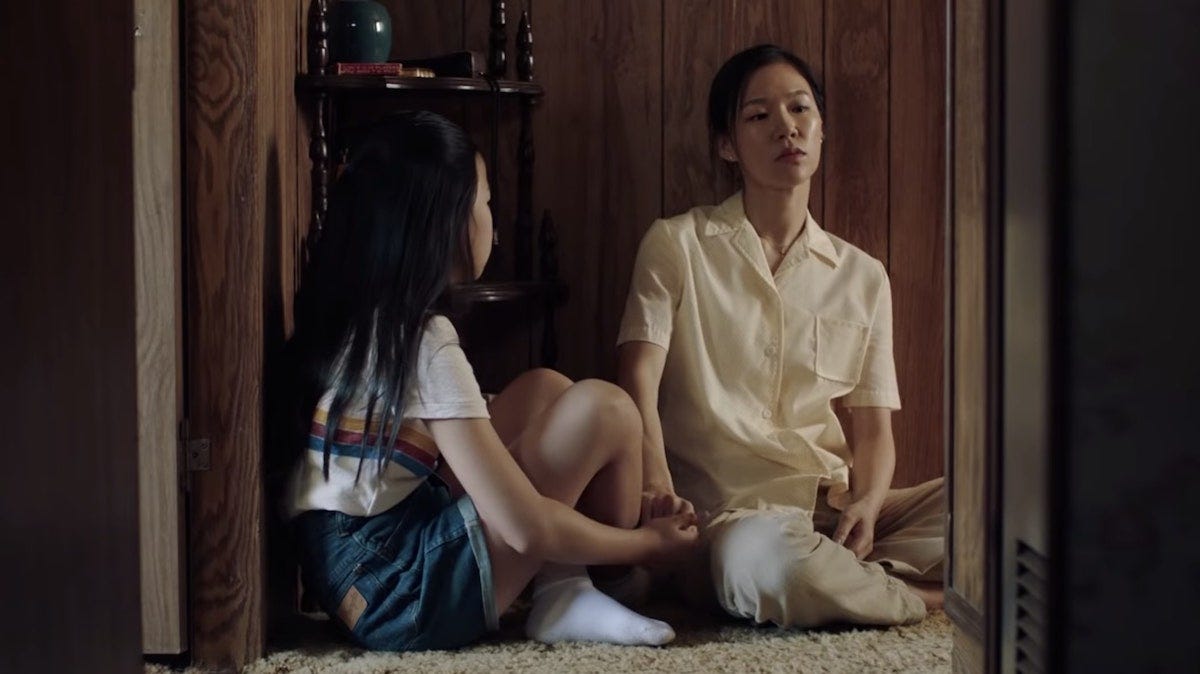Following his critically acclaimed debut feature Munyurangabo (2007), the Denver born Korean director Lee Isaac Chung produced three features that seemingly slipped under the radar, before making waves in the 2020 awards season with his latest film, Minari. As the son of Korean immigrants raised on a farm in rural Arkansas, Chung presents a semi-autobiographical story that hits home for the director, and hard on the audience.
Jacob Yi (Steven Yeun) has relocated his family from California to a nice plot of land in rural Arkansas. Living in a small trailer, Jacobs dream is to grow authentic Korean produce to sell to nearby vendors and leave behind the job of chicken sexing that he and his wife Monica (Yeri Han) have to endure in order to provide for their children Anne (Noel Cho) and American born David (Alan S. Kim). While he remains optimistic, Monica grows increasingly anxious about their future and their sons health, leading to many arguments. As Jacob works hard in his farm, Monica takes comfort in the arrival of her mother (Yuh-Jung Youn), a more free-spirited soul who works to develop a bond with unwilling grandson David, who struggles to accept her based on his Westernised perspective of what a grandmother should be.
To put it simply, Minari is an excellent film, and it’s no surprise whatsoever that it’s such a strong awards contender. Controversy arose when the Golden Globe nominations were announced – Please, contain your surprise – and the HFPA deemed Minari ineligible for the Best Motion Picture – Drama category on the grounds that over 50% of the dialogue is spoken in Korean, thus leading to its nomination in Best Foreign Language Film. One viewing of the film will show you exactly why this decision is ridiculous; at its roots and in its DNA, Minari is an American picture through and through. If the HFPA could come to terms with insignificant detail of subtitles, they might realise that the story in front of them is the American Dream at play – Jacob wants more. He envisions a better life for his family where they’re not simply getting by but actually thriving, and takes a great risk to make this dream happen. He downsizes everything and starts at the bottom, on the promise that hard work and determination will take only take him upwards. Much like many people in the years since the term was coined, Monica is cynical and has a more pessimistic approach to the concept. Their children are caught up in the ongoing debate, briefly alleviated by the presence of their grandmother. Not only that, but the film deals frequently with the impact of American ideals on impressionable David, whose worldview is seemingly warped by the Western life that he’s been raised in, which is at odds with his father’s goal to bring authetntic parts of his culture to the country. To say that Minari is un-American based purely on the language used sets a dangerous precedent for what qualifies as or, even worse, what has the ‘right’ to be American and it’s something that should be done away with as quickly as possible.
At the heart of Minaris quiet, pulsing drama stands an incredible cast that bring the films ethos and emotions to life quite effortlessly; the drama and family tension that pervades the film develops through the runtime like a pot of boiling water, building up to that fatal moment where it will finally boil over. Despite Jacobs best efforts to be optimistic, Yeun carries a constant desperation and quiet anger through every scene that underscore the characters hope with a crushing reality. The heat is turned up by the careful, anxious nature of Yeri Han’s performance, the care-free attitude of Yuh-jung Youn and the bratty desires of David. The thing is, Minaris pot never boils over…it just keeps bubbling. Even with its quiet devastation in the third act, Minari doesn’t resort to any one scene, line or outburst that releases all the pain and tension we’ve racked up so far. That would be too easy. Instead, it offers zero resolution to show that the complexities of pining for comfort, success, stability etc. are just far too powerful to simply be brought down to a single moment. It’s simply beautiful in that respect, and makes for one of the most enticing stories of the year. Chung’s writing and direction lay down these feelings and realities that the cast picks up and carries forward impeccably to the films conclusion. Its only great failure is the treatment of young Anne, who is played wonderfully by young Noel Cho but feels a little bit side-tracked in favour of everyone else. In a way this is quite fitting, given the reduced attention the character receives in comparison to her much needier brother but, without an appropriate outlet for the character to vent any frustrations she might have over this, it means that this story note – intentional or otherwise – falls flat. The film is strong enough that this doesn’t prove particularly detrimental, and to come away with only one complaint is pretty impressive by any measure, but a more thought-out development for Anne would not have gone unnoticed or unappreciated.
As I sit down to write this, I simply had to listen to Emile Mosseri’s score. It’s the kind of score that strikes you the minute you hear it; a soft but powerful score that underpins the films tension and troubles with a solemn, intimate melody that radiates beauty. It has a certain grandiose nature to it, not unlike the desires of our leads, yet remains intimate enough to feel personal and relaxing. Here’s hoping that Mosseri will get a rightfully deserved Oscar nomination for his astounding work. Topping off an incredible screenplay, beautiful score, sensational cast and impeccable direction is Lachlan Milnes stunning cinematography; every shot of the Yi farm appears like a dream, the same dream that Jacob is adamant on fulfilling. The sheer beauty that comes with Milnes work makes a perfect contrast with the much bleaker realities sat in the films story. But it makes the farm feel big, beautiful – It accentuates every detail to ensure absolutely nothing is missed. Again, it’ll make a welcome entry in the Best Cinematography category this year.
Minari is nothing short of masterful; a delicately presented and magically enticing family drama that is as wistful and fun as it is devastating. It’s available on VOD now in the US, whilst it sadly does not have a UK release date just yet, following its screening at Glasgow Film Festival this past weekend. But whenever you can see it, please do. It’s incredibly special.






